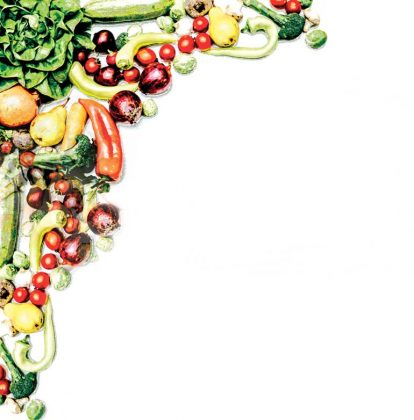
Six and half months into the health crisis, all economic sectors and ecosystems, the very fabric of our daily lives, have been affected adversely. Moving forward to a new normal arrangement, however, entails the crafting of a roadmap for economic recovery and, in particular, industry-specific plans, e.g. agricultural recovery policies.
A fundamental aspect in agriculture that impinges upon farmers, workers, and agribusinesses is trade policy. According to the Philippine Statistics Authority, the Philippine Balance of Trade in Agricultural Goods stands at a deficit of $1,187.56 million, where our Agricultural Exports stand at $1,606.65 million while our Agricultural Imports stand at $2,794.21 million as of the First Quarter 2020.
Philippine agricultural trade performance vis-a-vis our ASEAN neighbors showed that the overwhelming source of our trade deficit was with our neighbors. Totalling to $869.65 million, the largest deficits are with Vietnam ($260.54 million), Indonesia ($223.83 million), Malaysia ($154.29 million), and Singapore ($100.91 million).
But what the situation impacts most are the chicken and livestock sectors. As of Sept. 21, the inventory of local dressed chicken stood at 33,740.45 MT while imported dressed chicken was at 39,386.97 MT (according to the National Meat Inspection Service). According to the Philippine Association of Feed Millers Inc. (PAFMI), as much as 70% of the meat stored in our facilities is imported.
Before and during the pandemic, the country, because of its imbalanced and partisan policies on poultry and livestock importation, is fast becoming a dumping ground for meat imports. By virtue of misdeclaration, tens of millions of kilos of imported pork have entered the domestic food market. There have also been reports about confiscated mis-declared pork and other meat products from China that are worth millions of pesos. Tens of thousands of kilos of smuggled frozen meat products from China have been illegally imported as well.
Given the voluminous excess of imported meat over locally produced meat, not only the local agricultural economy is threatened but also public health. With the spread of Avian Influenza and African Swine Fever, and during the pandemic where domestic demand has been weakened by COVID-19 related concerns and the disruption of supply chains, the continuous and irresponsible importation of meat and processed meat products has directly endangered the biosecurity of Filipinos, and put at great risk the domestic poultry and livestock population.
Once public health has been exposed to biosecurity hazards, the whole agricultural ecosystem — agribusinesses, allied industries, and the millions of farmers and agri-dependent workers — likewise becomes vulnerable. Ergo, if the agricultural economy is at risk, the food security of the whole country becomes equally imperiled.
In a recently concluded webinar dubbed “Managing Food Supply Chains: A Multi-Stakeholder Perspective,” hosted by Stratbase ADR Institute, one striking perspective that stood out pertains to the implementation of a sensible regulatory environment under which agriculture and the millions who are dependent on the industry could recover and thrive into the new normal.
While Stratbase President Professor Dindo Manhit talked about the promotion of the local food cycle to assure a food secure environment, Department of Agriculture (DA) Undersecretary Ariel T. Cayanan discussed the department’s support of the agricultural sector and explained the various programs of the DA in helping our farmers, workers, agribusinesses, and allied industries. Meanwhile, Philippine Association of Feed Miller President Nikki Garcia emphasized the need for the continuous implementation of the many programs mentioned by the DA in order to achieve their goals. She also talked about a calibrated implementation of policies based on concrete data that could in the process balance exportation and importation.
Food security was the focus of the virtual town hall gathering. Managing food supply chains goes beyond overseeing the unhampered movement of food and its production, but includes as well biosecurity and the survival of the local food and agriculture industry. Beyond availability and affordability, food security is anchored on a broader and deeper framework of food sovereignty. As mentioned by Representative Argel Cabatbat, from the MAGSASAKA Partylist, the divide between producers and consumers should be bridged.
With existing conditions, tangible mitigation measures refer to curbing over-importation and arresting the practice of misdeclaration to avoid higher tariffs. And in order to make agricultural policies meet with on-the-ground realities, a synergy between government and the agribusiness industry must be forged. In action, coordination between the DA, agribusiness stakeholders, and farmworkers/producers should be practiced to ensure coherence between policy and field data. At the end of the day, a balanced policy on exportation and importation in the new normal will simultaneously achieve health objectives, promote local agricultural industries, and set in motion a national agenda for a food secure environment.
Dr. Jaime Jimenez is the Deputy Executive Director for Research and Head of the Editorial Board of the Stratbase ADR Institute.
